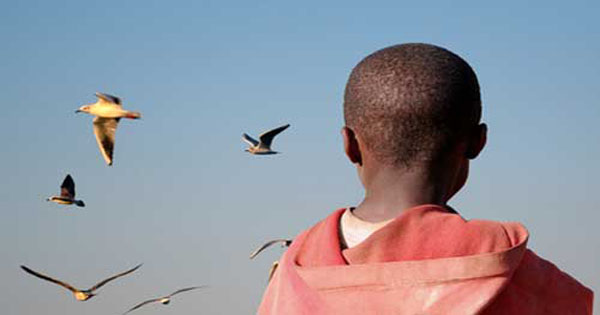
Autism in Africa: informing, raising awareness and training to give hope to autistic children and their families
According to the World Health Organization, 1 in 160 children worldwide has ASD. In Africa, there are many autistic children, but nothing is done to help them. Autism is therefore becoming a real awareness issue to give hope to autistic children.
What is autism?
Autism is a pervasive developmental disorder, appearing at an early age, characterized by relatively profound deficits in the areas of social interaction, communication, and imagination, with behavioral limitations and stereotypies, and restriction of interests and activities (apa, 2000; Wing, 1998; who, 1994).
It is important to note that autism is not a disease. In fact, the brain of a person with ASD functions differently than that of other people.
Some points to know!
- Autism affects all children, regardless of gender or social class.
- Identified 70 years ago, autism is now called autism spectrum disorder (ASD) to encompass a broader spectrum of disabilities and social interaction difficulties.
- There is not one, but many autism spectrum disorders. They include childhood autism, Asperger’s syndrome and pervasive developmental disorder.
- For Asperger’s syndrome, the child with autism has an IQ that is within the normal range or higher than average.
- It simultaneously affects social interactions, communication and behavior with repetitive gestures (clapping, rocking, spinning, complex body movements, etc.), stereotyped rituals and restricted interests. These signs can be accompanied by sensory hypersensitivity (sounds, light, touch…) and strong emotionality to any change in the environment. But we also see for some autistic children, signs such as hyperactivity, intellectual disability, sleep disorders, eating disorders or epilepsy.
- Autism is detected in childhood, but many people do not realize they have an autism disorder until adulthood. Others are never diagnosed.
- It is important to know that autism is not a disease. This is because the brain of a person with ASD works differently than the brain of other people.
-
There is no “cure” for autism – if you have autism, you will have it for the rest of your life – but people with ASD can get support tailored to their specific needs.
How do you detect or know that a child is autistic?
There are three characteristics of autism (apa, 2000).
- 1) Impaired social interaction.
For example, the child does not make eye contact, does not play with anyone, does not respond to social stimulation, does not show interest in the presence of others, does not share interests with others.
- 2) Impaired verbal communication.
For example, the child has language difficulties, does not speak or has difficulty carrying on a conversation with others.
- 3) The presence of strange behaviors and stereotypical interests.
For example, the child behaves strangely and makes stereotypical gestures. He or she is interested in a limited number of toys, his or her interest is focused on a single object, and he or she displays repetitive behaviour all day long.
What is life like for autistic children in Africa?
Point 1) Children with autism are misunderstood and marginalized.
In Africa, the life of autistic children is not easy. They are often misunderstood by their entourage and are victims of socio-cultural prejudice, isolation and marginalization.
They are considered as :
- divine curses
- child witches
- possessed children
- evil spirits
- mentally ill children.
- stubborn and stupid children.
And it is very difficult to explain to the people of the village that the autistic child is not possessed,” says Dr. Aboudramane Coulibaly, executive director of the NGO “Vivre-debout”.
The autistic child and his or her family find themselves rejected and excluded by society. They have to struggle on a daily basis to manage their disability or disorder and also they have to face social condemnation.
Ms. Kieffoloh emotionally recounts the sad story of an 8-year-old autistic child who was sent to a cult’s prayer camp:
“The kid, chained, slept on the floor like a dog, because they said he was possessed.”
Ms. Sylvia states:
“In our culture, if you exhibit certain behaviors, you will be labeled as ‘mentally ill.’ That carries a lot of negative connotations.”
It is important to note that autism isn’t a disease. The brain of a person with ASD works differently than the brain of other people.
As Albert Einstein says here:
“Everyone is a genius. But if you judge a fish on its ability to climb a tree, it will spend its life believing it is stupid.”
2nd point the lack of adapted structures.
The African continent is behind other countries in the world. They do not have specialized structures adapted to treat this pathology. For those who do, the infrastructures are rudimentary. This does not facilitate either the treatment or the diagnosis. This is a real disadvantage, because autistic children do not always have the opportunity to be diagnosed at an early age. They do not benefit from any care or diagnosis and are unfortunately left to their own devices.
3rd point: the lack of specialized doctors and equipment.
Even if you have a place where you can accommodate autistic children. The care is quite heavy, because you need specialized doctors like :
- speech therapists
- child psychiatrists
- specialized educators
- psychologists
- psychomotricians
- occupational therapists
In Ivory Coast, for example, Touré Kieffoloh, head of the Centre d’action médico-psycho-social de l’enfant (CAMPSE), states:
“That in 2017, the Ivory Coast has almost no occupational therapist, psychomotrician or speech therapist.”
The medical community on the African continent needs more knowledge about autism.
In Togo, Karilowo Até explains:
“We do not yet have the technical platform needed to diagnose these disorders. The tools that we have today, and that we, the speech therapists, use, are tools that are imported from France and that are not adapted to our culture […] We don’t have psychomotricians who are going to make their diagnosis, child psychologists who are going to make their diagnosis, and so we have a little bit of a concern in that sense.”
4th point : the lack of AVS at school to help them integrate.
School is very important for a child. They need to know how to read, write and count to get by in life. All children, regardless of their disability, deserve to go to school. An autistic child needs trained people like the AVS to help and accompany them so that their school year goes well. And that they can evolve like the others.
What needs to be done to improve the lives of children with autism in Africa?
1/Awareness about autism to change mindsets and fight stigma.
Autism awareness is a real issue in order to prevent children with autism from being marginalized.
Ms. Allali expresses that:
“The first step to change things is to make people understand “that children with autism are not witches. That they can integrate into normal social life. That’s our mission.”
2/ Setting up adapted structures.
In order to cope with this pathology, children with autism need a specialized place. This is very important for the well-being and success of these children.
3/ Have trained and specialized physicians.
The management is heavy, trained and specialized doctors are needed to help them.
4/ Integration in schools for a better education thanks to AVS and the training of teachers in autism.
To deal with disabilities, teachers need to be trained in autism. They can be supported in class by AVS (aide à la vie scolaire) to help him/her integrate.
5/Make appropriate assistance available to support families of children with autism or disabilities.
To give hope to the families of autistic children and help them to raise them better. We hope that some African countries will set up aids to come to these different children.
As they say: “He who saves a life, saves humanity.
Courage to the families of disabled children.
The families of children with disabilities live a real nightmare. They have to face the gaze of their families and friends on a daily basis.
Moreover, it’s an obstacle course to find a center, association or specialized school. Those that exist are too expensive. Without help or support, they are discouraged and their children are unfortunately left to their own devices. On the African continent, thousands of autistic children of poor parents do not attend school and show more severe disorders.
Some testimonials!
In Senegal, Mrs. Diop talks about life with her 20-year-old autistic son:
“The look in people’s eyes was harder to bear. They would say to me, ‘Ki weroul. Dafa Doff (he’s sick. He’s crazy) etc.” The judgment was the same in my own family. Their intolerance shocked me deeply.” Especially when it came from her own partner, the father of her child. “He was the most cruel. He went so far as to blame me for our son’s attitude. He thought our son was doing it on purpose and that I was letting it happen too much. I didn’t take it well, because it’s hard to live with an autistic person when your husband, who is supposed to be supportive of you, pushes you down a little more, it’s intolerable. We ended up separating.”
The case of A. D: The father of an autistic child expresses:
“Because my autistic daughter requires attention, resources and constant support, I chose to have only her as my child. Our decision to limit ourselves to her was not always well understood. Especially by our parents, who developed all sorts of conjectures. They thought we were sterile, sick. Others doubted our faith. People did not understand our choice. But you have to live our experience to understand us, because autism is a very expensive handicap. There is no support from the state. If you can’t afford to enroll your child in a specialized center where enrollment costs between 120,000 and 240,000 francs, you have to go to the Aminata Mbaye center. And there too, it’s not cheap, because enrollment is 70,000F and the monthly payment is 60,000F.
Liste des centres ou associations qui aident les enfants autistes en Afrique.
Si vous êtes en Afrique et que vous soupçonnez votre enfant d’être autiste, on vous liste ci-dessous des associations ou centres qui pourront, vous aidez.
Senegal
in Dakar
- The Centre Estel (Specialized technical establishment of expression and leisure)
The association welcomes 60 children and helps children and young adults with disabilities.
- Educ’Autisme
17, Cité Ady NIANG Hann-Maristes
- ASEDEME
The Aminata Mbaye Center of Grand-Yoff is the first medico-educational center created by ASEDEME.
In Ivory Coast
- Children’s Medical and Psychosocial Action Center (CAMPSE)
It’s directed by Miyala Touré Kieffoloh. It welcomes about sixty children.
- Child Medical and Psychosocial Action Center
- The Ivory Coast Autism Association (2Aci)
Cameroon
in Douala
- ISPPA
Creation of a Higher Institute of Applied Psychopedagogy (ISPPA) in October 2015
- The association Autism in Africa.
- The Centre Orchidée Home
It’s an autism care center founded in 2005 in Douala. This socio-sanitary structure works to help and rehabilitate children with autism.
In Congo Zaire
at Kinshasa
- CongAutisme
Help center for autistic children
In Congo Brazzaville
- L’Association des petites sœurs Dominicaines
With its specialized school “la case Dominique”, it helps with the accompaniment and social integration of young people and children in difficulty excluded from the school system, particularly autistic children.
Dear Readers, if you know of any adapted structures or associations in Africa, which help in the care of autistic children. Do not hesitate to leave us a comment or send us an e-mail to afroculturee@gmail.com. Don’t hesitate dear parents of autistic children to tell us your stories. We encourage you and wish you much happiness for you and your children. May God keep you!
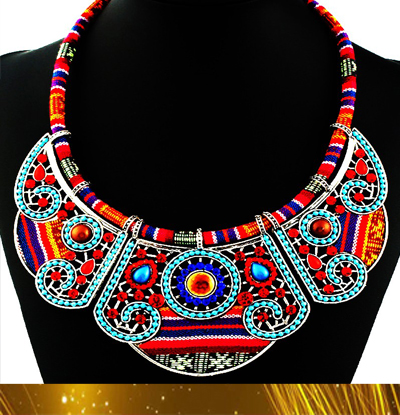
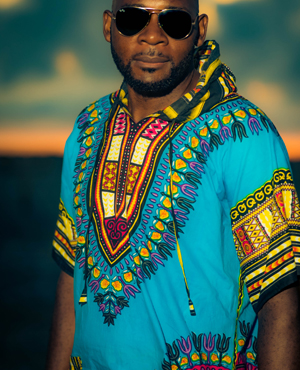


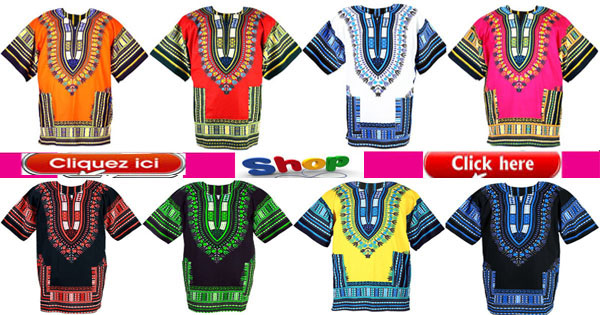
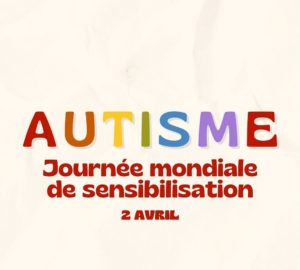

Greatly appreciated, very well described and great in detail. Thank you for such a great effort. I got a clear idea about this subject.